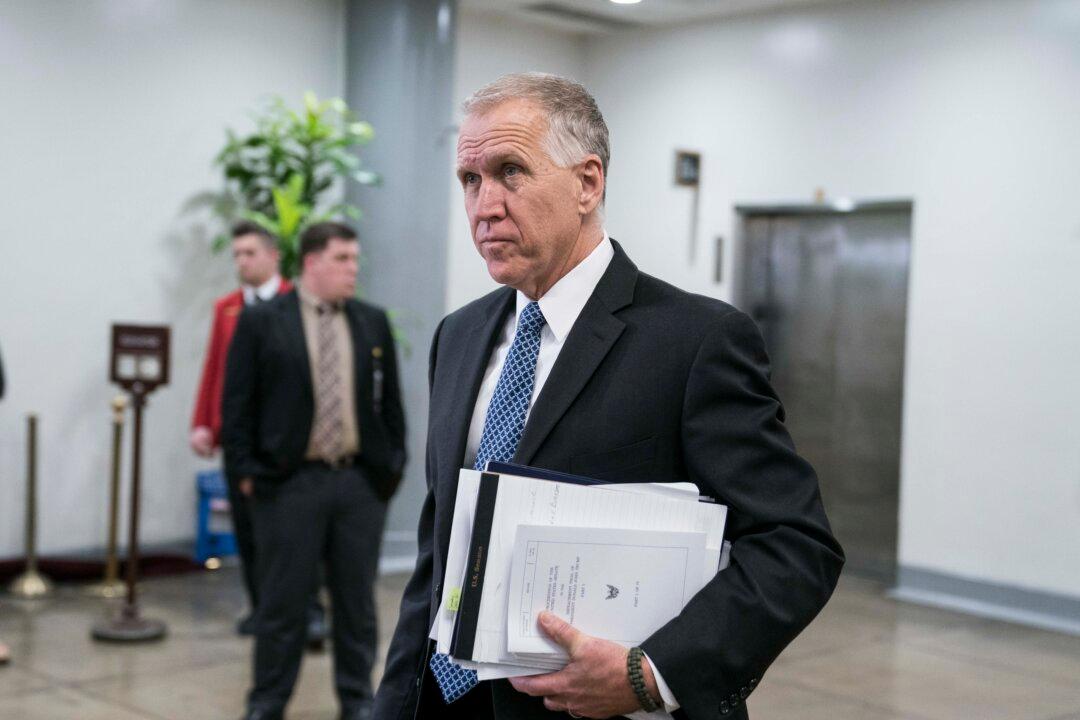Sen. Thom Tillis (R-N.C.) announced Thursday he will introduce a measure to restrict federal funds to states that block candidates’ ballot access as soon as Congress returns to session early next year, after Maine’s secretary of state decided to block former President Donald Trump from the ballot.
The senator drafted the legislation, the Constitutional Election Integrity Act, in response to a similar decision that was made by the Colorado Supreme Court last week to bar the former president from appearing on the Colorado ballot.





